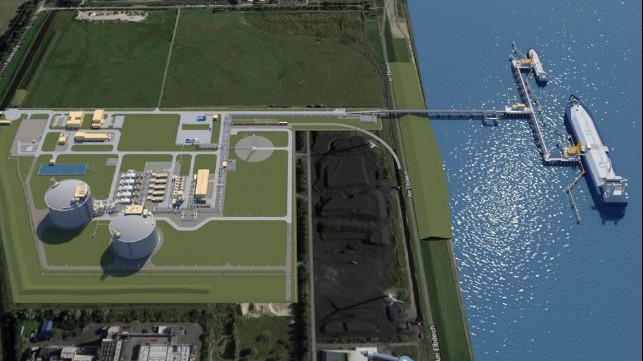Fearing Sabotage, Germany Strengthens Maritime Security Patrols

Germany's police forces are upping protection for maritime infrastructure after the recent attacks on the Nord Stream pipeline complex, which cut three of the four subsea pipelines between Russia and Northern Europe. The German government is now working hard to develop LNG import terminals to offset Russian gas deliveries, and it is all too aware of the possibility of sabotage at these new mission-critical energy sites.
"We have strengthened the police's work at sea," Interior Minister Nancy Faeser told Reuters, specifically highlighting LNG projects. "Police are patrolling at sea with all their available forces and ships to also protect maritime infrastructure."
The attacks on the Nord Stream system brought sudden attention to the vulnerability of infrastructure under the sea and along the waterfront. Four separate blasts penetrated the Nord Stream pipeline complexes on September 26. Three out of four pipes were ruptured, leaving one single pipe of the Nord Stream 2 system intact. All were full and pressurized at the time of the damage, and the resulting gas leak is believed to be the largest manmade methane release in history (as well as a colossal financial loss). An investigation into the cause is ongoing; the governments of Poland and Ukraine have blamed Russia for the attack, and Moscow has denied involvement.
Given the heightened tensions with Russia over the ongoing war in Ukraine, and suspicions that the Nord Stream attack might be linked, other European nations have also elevated their surveillance efforts to monitor the security of maritime infrastructure. Italy has deployed more naval assets to watch the Transmed gas pipeline, and Norway has added more patrols and security personnel for its offshore platforms.

that matters most
Get the latest maritime news delivered to your inbox daily.
Germany has additional cause for concern. On October 8, a "targeted and malicious" attack on communications cables shut down the rail network for much of northern Germany, sending a message about the possibility for sabotage deep in the nation's interior. Essential comms cables for rail routing were cut simultaneously in two different locations, one outside of Berlin and another in the state of North Rhine-Westphalia. Rail operator Deutsche Bahn had to halt freight and passenger rail operations for hours in affected areas.
An inquiry into the attack is under way, and the German government plans to invest millions to install 11,000 new surveillance cameras to monitor rail infrastructure.
